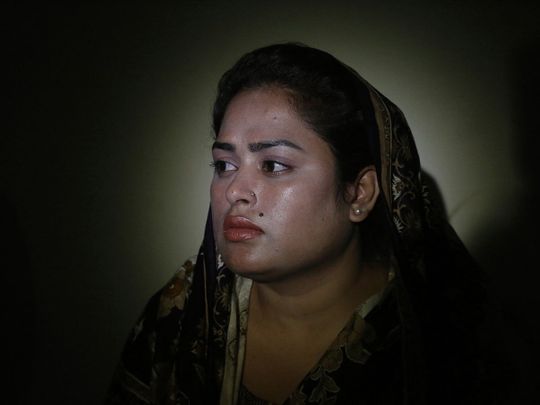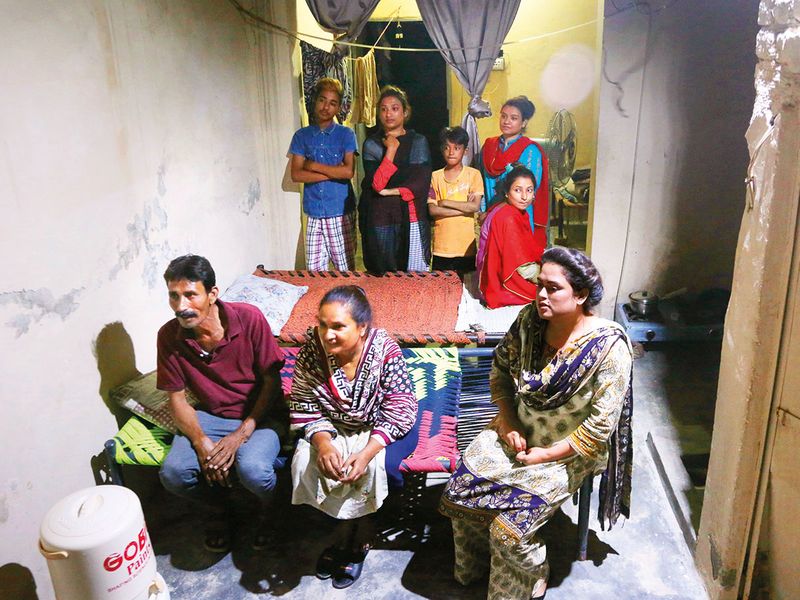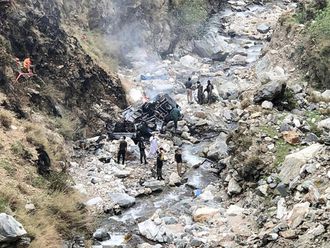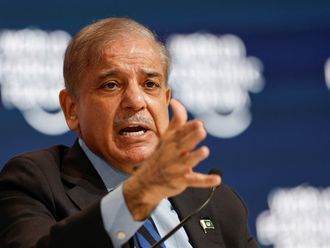
Faisalabad: At first, in her desperate calls home to her mother in Pakistan, Natasha Masih couldn’t bring herself to say what they were doing to her.
All the 19-year-old would say was that her new husband — a Chinese man her family sold her off to in marriage — was torturing her. Eventually she broke down and told her mother the full story, pleading with her to bring her home. The husband had hidden her away in a hotel in a remote corner of China and for the past weeks had been forcing her to have sex with other men.
“I bought you in Pakistan,” she said her husband told her. “You belong to me. You are my property.”
Her mother turned to the only people she knew who could help, her small evangelical church in a run-down slum of the Pakistani city of Faisalabad. There, a group of parishioners began putting together an elaborate plan to rescue the girl from the hotel more than 1,770km away.
Masih was one of hundreds of Pakistani girls who have been married off to Chinese men in return for cash payments to their families, most of them Christians, a community that is among the poorest of the poor in the country.
Since then, police investigations have uncovered that many of the women are forced into prostitution in China. A picture of the extent of the trafficking networks has emerged from a series of arrests and raids in recent weeks by Pakistan’s Federal Investigation Agency, as well as testimony from victims, many of whom were previously too frightened to come forward.

The AP spoke to seven girls who had been forced into prostitution — four of them still in China.
Families are told their daughters will be wed to well-off businessmen and given good lives in China, and the marriage trade is depicted as a benefit for all sides — impoverished parents receive money, while Chinese men find brides in a country where men outnumber women. But investigators are increasingly convinced that the majority of the girls are sold into prostitution, two law enforcement officials familiar with the investigations told the AP.
“The girls who are interviewed say they were tortured” — using a euphemism for rape and forced prostitution, said one of the officials. “They are afraid for their families and for the disgust they fear they will feel. ... Make no mistake, this is trafficking.”
Evidence of networks
“China is denying it is happening, but we are showing the proof,” said Saleem Iqbal, an activist in Pakistan’s small Christian minority who has helped bring girls back from China and collects evidence of trafficking networks that he provides to police.
The AP spoke by messaging app with Arooj, a Pakistani girl still trapped in China. She said her husband beat her and would come home drunk with friends and force her to have sex with them. Like many of the girls, she wasn’t sure where she was in China; often they are taken from Beijing on flights elsewhere in the country, then driven for hours to small towns, without being told the destination.
Ijaz Alam Augustine, the human rights and minorities minister in Pakistan’s Punjab province, estimated that more than 500 women have been trafficked to China, while Iqbal put the figure at 750 to 1,000.
In early May, Pakistani police swept through posh neighbourhoods in the Punjab provincial capital of Lahore and in the national capital, Islamabad. They arrested Chinese nationals and their Pakistani partners involved in two marriage-broker networks that sought out Pakistani girls for Chinese grooms. They all now face trafficking charges.
Investigators have since made further arrests in smaller Punjab towns and in the western city of Peshawar, rolling up more networks. Overall, at least two dozen Chinese and dozens of Pakistanis have been arrested.
The two law enforcement officials said the Lahore-based network had been operating for at least a year. The network was protected by corrupt policemen, and the son of a former senior police official served as the lynchpin between the Chinese and Pakistani operatives, the officials said.
The network also benefited from lax oversight by authorities, they said. For example, at least five of the Chinese traffickers were able to enter Pakistan on business visas based on companies that didn’t exist.
Investigators have conducted dozens of interviews in recent weeks with trafficked girls and women, who are increasingly speaking out.
One woman, Sumaira, who was sold to a Chinese groom by her brothers, told the AP she had remained silent for months after escaping her husband, even refusing to talk to investigators. But now she is coming forward.
“If I had told everything that happened to me then, maybe I would have saved so many other Pakistani girls,” she said. “But I was too afraid, too afraid of my brothers. Now I want the people that did this to me to not do it to other girls.”
Back in Faisalabad, a member of her parent’s church, Farooq Masih, formed a group of men from the congregation to try to help. Masih, who is not related to Natasha, told the AP they struggled with how to free Natasha until one among them told of his younger brother who was a student in China. The brother agreed to contact Natasha’s husband, pose as a client and get access to her.
The student texted Natasha and told her he was coming to rescue her, asking for details of when her husband comes and goes from the hotel. Finally, the day came. He called her and told her to slip outside the hotel to where he was waiting in a taxi.
“I saw him and quickly I took my clothes and got into his taxi,” she said. “I didn’t ask his name. I didn’t ask anything, I just said, ‘Brother, thank you.’” Soon she was on a plane to Pakistan.
Farooq Masih and the other men from the church have since dedicated hours to unearthing trafficking networks. They recently conducted their own sting operation in Faisalabad, orchestrating a fake marriage to a prospective Chinese groom that led the Federal Investigation Agency to the Chinese and Pakistani brokers and the pastor who solemnised the unions for a fee.
Meanwhile, Natasha — who turned 20 last week — helps other young women open up about their experiences and encourages them to talk to investigators. She has heard reports that her husband was back in Pakistan looking for another girl to marry.
“I am lucky,” Natasha said. “Many girls who were taken there by their husbands are still living a terrible life. ... Now I know what is freedom and what is slavery. In China, I was treated as a slave by my husband.”












